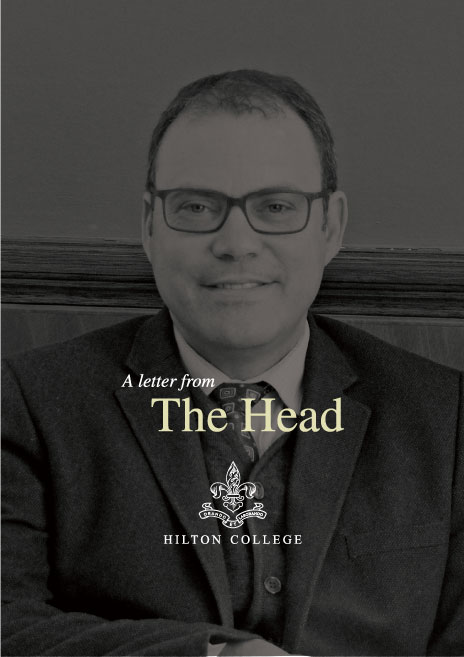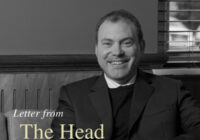1 June 2022
Dear Parents and Guardians,
Must it always be better?
There are days when better is just impossible; it doesn’t matter what I try, better just cannot occur. I think this is just as true for stockbrokers and fund managers as it is for me – some years are just not as good as previous ones.
But today’s world is unforgiving.
Our planet’s resources are succumbing to overuse in ways that jeopardise our children’s futures and that of their offspring – we know the stats – yet the key performance indicators we set for ourselves remain fixed and focussed on ever more and ever better.
We feed this monster.
A growing number of psychologists have been raising the alarm on the pandemic of mental illness among young people. The growth in numbers of teenagers battling with a myriad of mental challenges has been aggravated by Covid; the various restrictions under which we were all forced to live resulted in the collapse of many a teenagers’ real social worlds.
Yet our world, which is largely driven by us parents, continues to demand – to expect – more and better from our children. Yesterday’s score was just that – yesterday’s – tomorrow’s must be an improvement, otherwise we cannot be judged to be moving forward.
I find myself questioning the system to which we subscribe when an able young person develops significant anxieties which are amplified by the stresses of needing to achieve…only better is good enough. Thus, I have been wondering about creating or subscribing to a “happiness index” for teenagers and for schools: a metric (ironically a measurement again) which might assist us in focussing on different issues in ensuring our teenagers’ health as they progress in this extremely competitive world.
Although this is a very difficult topic to address, and one which I am sure I am ill-equipped to articulate clearly enough, it would seem to me, in simplistic terms, that we need to be content with that which is not always better.
Can a happy child be one of our highest prizes?
A young person enthused by life’s possibilities; a young person eager to venture into something new; a young person who is learning the art of self-reflection and contentment; a young person who loves his or her take on life; a young person at relative peace with himself or herself as he or she navigates this most messy stage of development.
I am not one to harken back to the “good old days” of carefree living. That too would have been a skewed reality for many in South Africa, but I am suggesting a resetting of our expectations that argues that continuous improvement is not the only measure of success and progress. A more realistic and healthy reflection may indeed be a review of teenage “wellness” and the acknowledgement that young people will find their way in the world if they are given space to breathe and to be.
At Hilton, I believe a significant number of our boys are happy. Our school seems to be in a happy state too. There is some time and space for our boys to connect with each other, to shoot the breeze, to form relationships etc. The question we need to ask is whether this time allocation is sufficient, and whether this licence “to be” is accompanied by authentic permission to deliver another good performance which is divorced from an unhealthy and unrealistic demand for “always better”.
Kind regards,

George Harris
Headmaster




